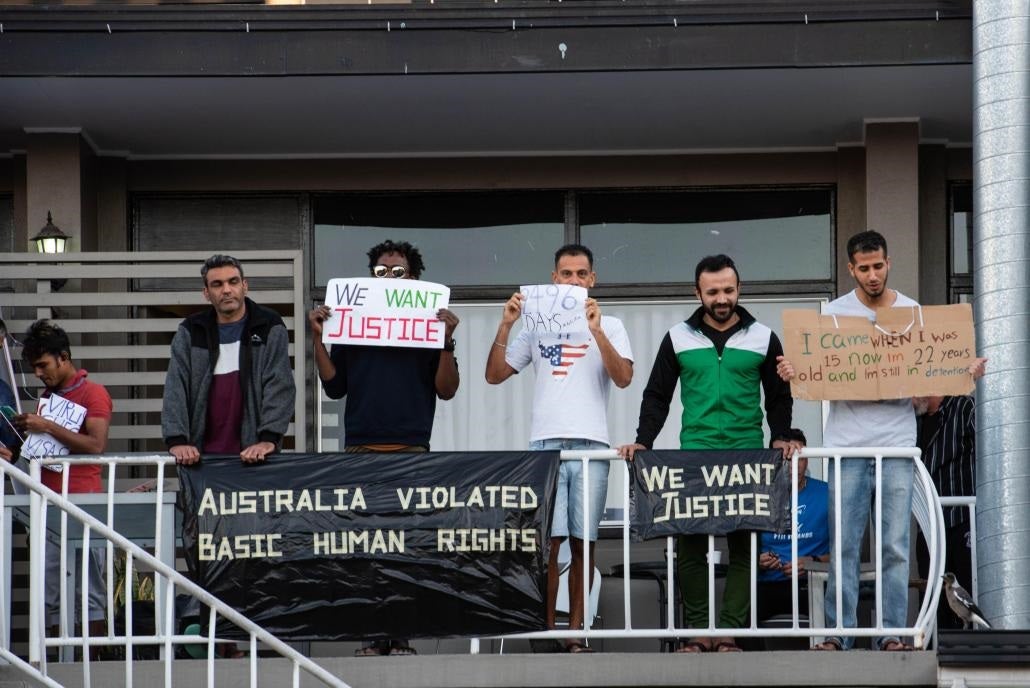Written by: Ushasi Dey
Edited by: Yashi Shah
DETENTION POLICY OF AUSTRALIA
Deprivation of liberty means any form of detention or imprisonment or the placement of a person in another public or private custodial setting from which this person is not permitted to leave at will, by order of any judicial, administrative or other public authority.
Detention is the process whereby a state or private citizen lawfully holds a person by removing their freedom or liberty at that time.
In 1992, Australia adopted a mandatory detention policy obliging the government to detain all persons entering or being in the country without a valid visa, while their claim to remain in Australia is processed and security and health checks undertaken. Also, at the same time, the law was changed to permit indefinite detention, from the previous limit of 273 days. Mandatory detention continues to be part of a campaign by successive Australian governments to stop people without a valid visa (typically asylum seekers) entering the country by boat. Both adults and children must stay in detention until their asylum claim has been finalized or a bridging visa has been issued. Over this time, three key criticisms consistently emerge. They are the effectiveness of the mandatory detention, the legality of the mandatory detention, and the indeterminate nature of mandatory detention.But what are the effects of immigration detention on mental health? High levels of anxiety, depression, PTSD, and poor quality of life are some of the researched effects of detention studied on participants who were detained from all over the world including Australia. We hope that these problems are met up soon by the Australian government.







0 Comments